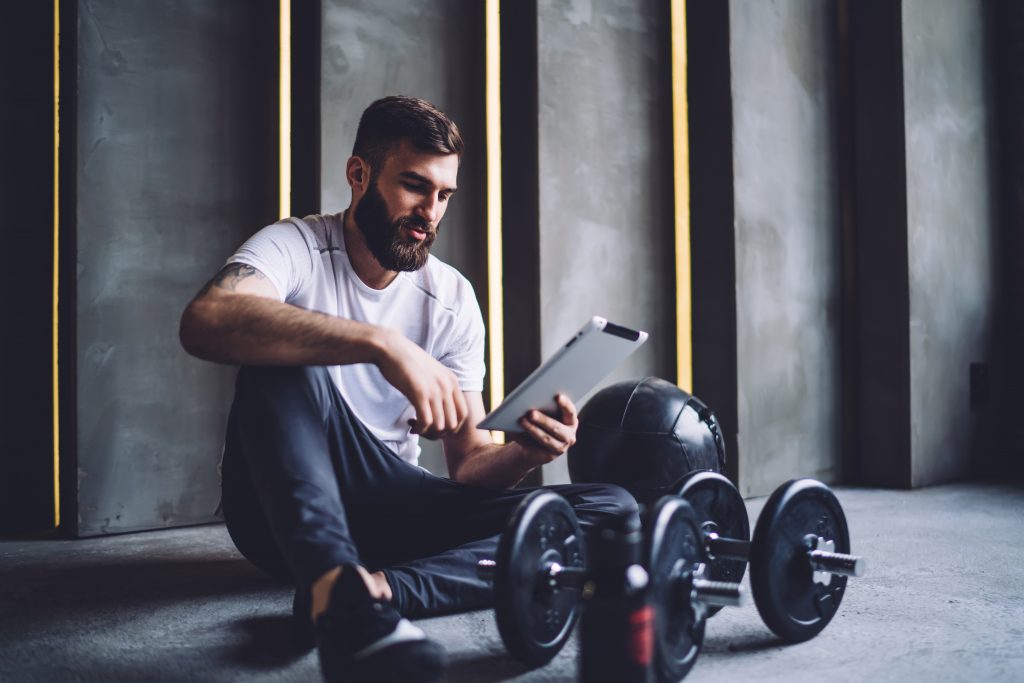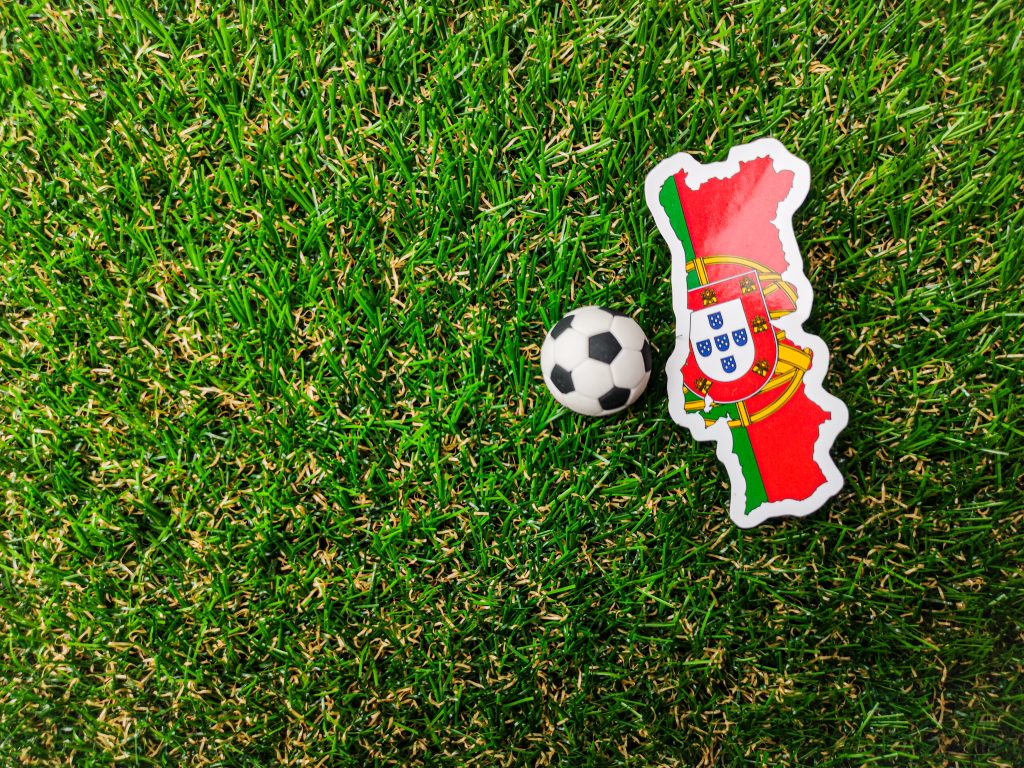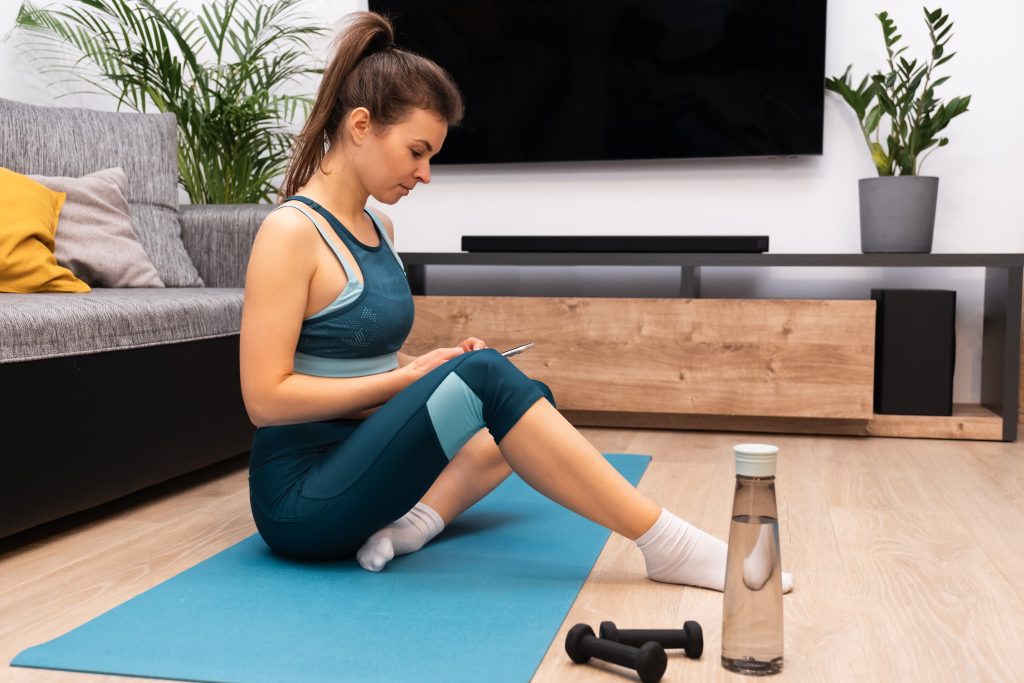Portuguese is a Romance language that originated in the Iberian Peninsula and is primarily spoken in Portugal, Brazil, and several African and Asian countries. It is the sixth most spoken language in the world and is known for its musicality and rich cultural heritage. With its complex grammar and unique pronunciation, learning Portuguese can be both challenging and rewarding. Whether you are a beginner or an advanced learner, there are numerous websites available that can help you improve your Portuguese language skills. From interactive lessons and grammar books to language exchanges and audio resources, these websites cater to learners of all levels and offer a wealth of resources to enhance your understanding and fluency in Portuguese.
Who are the Native Speakers?
Native speakers of Portuguese are individuals who have learned the Portuguese language as their first language and use it as their primary means of communication. As the sixth most spoken language in the world, Portuguese is predominantly spoken in Portugal, Brazil, and several countries in Africa and Asia.
In terms of demographics, Portuguese native speakers include a diverse range of individuals across different age groups, social backgrounds, and educational levels. They are found in urban and rural areas, both in developed and developing nations.
Portuguese holds significant cultural importance for its native speakers. It is the official language of Portugal and Brazil, two countries with rich histories and vibrant cultures. Portuguese also plays a crucial role in connecting communities in countries such as Angola, Mozambique, Cape Verde, and Guinea-Bissau.
As a Romance language, Portuguese is closely related to Spanish, Italian, French, and Romanian. Its importance extends beyond its native speakers, as it is a popular foreign language choice for language learners worldwide.
Overall, Portuguese native speakers form a diverse and culturally significant group, contributing to the dynamic and global reach of the Portuguese language.
Benefits of Learning Portuguese
Learning Portuguese offers a plethora of benefits for language learners. Firstly, it opens up opportunities for communication with over 260 million native speakers around the world, making it the sixth most spoken language globally. This widespread use of Portuguese provides learners with access to diverse cultures, traditions, and societies. Additionally, learning Portuguese can enhance one’s professional prospects. With the growing economies and global influence of Portuguese-speaking countries like Brazil and Portugal, proficiency in the language can greatly boost career opportunities in various sectors such as tourism, international business, and diplomacy. Moreover, Portuguese is considered a gateway to other Romance languages. Its similarities in vocabulary and grammar make it easier for learners to subsequently acquire languages like Spanish, Italian, and French. In addition to these practical benefits, learning Portuguese can also be a rewarding experience, allowing learners to engage more deeply with the arts, literature, music, and cinema of Portuguese-speaking countries. Whether for personal or professional reasons, the benefits of learning Portuguese are both practical and cultural, making it a worthwhile language to pursue.
Cultural Immersion
Cultural immersion is a vital aspect of learning Portuguese, as it allows learners to fully engage with the language and its native speakers. By immersing oneself in the culture, language skills can be dramatically improved, as well as gaining a deeper understanding of cultural nuances.
When learners immerse themselves in Portuguese culture, they have the opportunity to interact with native speakers on a daily basis, which significantly boosts their language skills. Through conversations with locals, learners can practice vocabulary and grammar in a real-life context, helping them to become more fluent and confident in their Portuguese-speaking abilities.
Furthermore, cultural immersion enables learners to understand cultural nuances that are embedded within the language. By participating in local festivals or events, joining community organizations, and practicing customs and traditions, learners can gain insights into the rich Portuguese culture. This understanding goes beyond just language skills, as it fosters a deeper appreciation and connection to the country and its people.
By actively engaging in cultural activities, learners can enhance their language skills and gain a more comprehensive understanding of the Portuguese language and its native speakers. Embracing cultural immersion truly transforms the learning experience, making it more rewarding and enjoyable.
Improved Employment Prospects
Learning Portuguese can greatly improve employment prospects for individuals in various industries. With the increasing global relevance of Brazil and other Portuguese-speaking countries, there is a growing demand for Portuguese speakers in the tourism industry, international business, and translation services.
In the tourism industry, Portuguese is essential for effectively communicating with visitors from Brazil and other Portuguese-speaking nations. Being able to converse fluently with these tourists can provide a competitive edge for individuals seeking employment in hotels, resorts, tour companies, and travel agencies.
Similarly, in the international business sector, knowledge of Portuguese opens up opportunities for individuals to work with companies that have strong ties to Portuguese-speaking countries. Brazil, for example, is a major player in sectors such as energy, agriculture, and manufacturing, making proficiency in Portuguese a valuable asset for individuals pursuing careers in these industries.
Additionally, the translation services industry greatly benefits from individuals who are fluent in Portuguese. As businesses expand their operations to Portuguese-speaking markets, the demand for translation services for documents, websites, and other communication materials continues to grow. Bilingual individuals who can accurately and efficiently translate between English and Portuguese are highly sought after in this field.
By being bilingual in English and Portuguese, individuals can access a broader range of job opportunities that require knowledge and fluency in both languages. These opportunities include roles such as international sales and marketing, customer service for Portuguese-speaking markets, and cultural exchange programs.
Increased Travel Opportunities
Learning Portuguese opens up a world of increased travel opportunities for individuals seeking to explore the rich and diverse cultures of Portuguese-speaking countries. By immersing oneself in the local culture while traveling, individuals can embark on a fun and challenging journey of language acquisition.
While there may be moments of difficulty in understanding and being understood, these challenges provide ample opportunities for communication and growth. Engaging with locals in their native language allows for a deeper connection and a greater understanding of the local customs, traditions, and way of life.
Whether it’s navigating the vibrant streets of Rio de Janeiro, savoring traditional Portuguese cuisine in Lisbon, or exploring the untouched beauty of Cape Verde’s islands, speaking Portuguese enables travelers to truly connect with the people and places they encounter.
Furthermore, learning Portuguese offers the chance to explore off-the-beaten-path destinations and have authentic cultural experiences. From participating in lively festivals and events to striking up conversations with locals in cafes and markets, speaking the language allows for a more immersive and meaningful travel experience.
So, if you’re ready for a new adventure, learning Portuguese will not only grant you increased travel opportunities but also enrich your journeys with unforgettable encounters and experiences. Embrace the challenges, communicate, and learn as you embark on a fulfilling journey through the Portuguese-speaking world.
Best Websites for Sports and Fitness in Portuguese
For Portuguese speakers interested in sports and fitness, there are several websites available that cater to their specific needs. These websites offer a wide range of resources, including workout routines, exercise videos, nutrition tips, and information on various sports. Whether you are a beginner looking to start a fitness journey or a seasoned athlete searching for new training methods, these websites provide valuable resources to help you achieve your health and fitness goals. In this article, we will explore some of the best websites for sports and fitness in Portuguese, ensuring that Portuguese speakers have access to the information and guidance they need to lead a healthy and active lifestyle.
For Portuguese native speakers passionate about sports and fitness, the online world offers a treasure trove of resources to help you achieve your athletic and wellness goals. These top-notch websites, crafted with the needs of Portuguese-speaking enthusiasts in mind, provide a winning combination of workout routines, nutritional tips, sports news, and motivational content. Whether you’re a dedicated athlete, a weekend warrior, or simply someone seeking a healthier lifestyle, these websites are your go-to companions on the journey to peak physical performance and well-being. Dive in and let the pursuit of excellence begin!

Online Communities for Portuguese-speaking Athletes and Fitness Enthusiasts
Online communities for Portuguese-speaking athletes and fitness enthusiasts provide a platform for individuals to connect, share experiences, and find support in their fitness journey. These communities are a great resource for Portuguese speakers who are passionate about sports and fitness.
One popular online community is “Esportistas Lusófonos” (Lusophone Athletes), which brings together Portuguese speakers from different countries who share a common interest in sports and fitness. Members can connect with fellow athletes, share training tips and techniques, and even find workout buddies or training partners.
Another thriving online community is “Atletas em Forma” (Athletes in Shape), where members can discuss their fitness goals, share progress updates, and seek advice from each other. This community is a supportive space for athletes of all levels, whether they are beginners or experienced competitors.
Furthermore, “Fórum Fitness Português” (Portuguese Fitness Forum) is a platform where Portuguese speakers can engage in discussions about fitness-related topics, such as nutrition, workout routines, and fitness challenges. It serves as a hub for exchanging ideas, asking questions, and seeking guidance from fellow fitness enthusiasts.
These online communities provide a valuable space for Portuguese-speaking athletes and fitness enthusiasts to connect with like-minded individuals, share their experiences, and find support on their fitness journey. Whether someone is just starting out or has been training for years, these communities offer a supportive environment to learn, grow, and achieve their fitness goals.
Social Media Groups Dedicated to Sports and Fitness in Portuguese
If you’re looking to connect with native Portuguese speakers who are also sports and fitness enthusiasts, there are several social media groups dedicated to this specific interest. These groups not only provide a platform to discuss sports and fitness in Portuguese but also offer a unique opportunity for Portuguese learners to interact with native speakers and fellow enthusiasts.
One such group is “Esportistas Lusófonos” (Lusophone Athletes), which brings together Portuguese speakers from different countries who share a common interest in sports and fitness. Members can connect with fellow athletes, share training tips and techniques, and even find workout buddies or training partners. This group provides an excellent opportunity for Portuguese learners to practice their language skills while discussing their passion for sports.
Another popular group is “Atletas em Forma” (Athletes in Shape), which allows members to discuss their fitness goals, share progress updates, and seek advice from each other. This inclusive community welcomes athletes of all levels, making it a supportive space for beginners and experienced competitors alike. Portuguese learners can benefit from interacting with native speakers in this group, as it not only helps improve their language skills but also provides valuable insights into the sports and fitness culture in Portuguese-speaking countries.
In addition, “Fórum Fitness Português” (Portuguese Fitness Forum) serves as a platform where Portuguese speakers engage in discussions about various fitness-related topics, including nutrition, workout routines, and fitness challenges. This group offers a hub for exchanging ideas, asking questions, and seeking guidance from fellow fitness enthusiasts. For Portuguese learners, participating in this group can enhance their vocabulary and understanding of fitness-related terms while connecting with native speakers who share the same interests.
Overall, these social media groups dedicated to sports and fitness in Portuguese play a significant role in connecting Portuguese learners with native speakers and fellow enthusiasts. By joining these communities, language learners not only have the opportunity to improve their language skills but also immerse themselves in the sports and fitness culture of Portuguese-speaking countries.
Podcasts on Training, Nutrition, and Wellness in Portuguese
Podcasts have become an increasingly popular medium for sharing information and knowledge, and the world of sports and fitness is no exception. For Portuguese learners interested in sports and fitness, podcasts in Portuguese can be a valuable resource for improving language skills while gaining insights into training, nutrition, and overall wellness.
One popular podcast in Portuguese focusing on workout routines is “Treine em Casa” (Train at Home). This podcast offers a variety of exercise routines that can be done within the comfort of one’s own home, making it ideal for those who prefer to work out without going to the gym. The hosts provide detailed instructions and tips, ensuring that listeners can follow along and achieve their fitness goals.
For those looking to improve their nutrition and learn about healthy eating, the podcast “Vida Saudável” (Healthy Life) is a great choice. The hosts discuss topics such as balanced diets, meal planning, and the importance of proper nutrition for overall well-being. Listeners can gain valuable knowledge and insights on how to make healthier food choices and improve their overall health.
Another popular podcast in Portuguese is “Bem-estar” (Wellness), which covers a wide range of topics related to mental and physical well-being. From mindfulness practices and stress management techniques to tips for better sleep and relaxation, this podcast offers valuable insights into living a more balanced and healthy lifestyle.
By listening to these podcasts in Portuguese, language learners can not only improve their language skills but also gain valuable knowledge and tips on training, nutrition, and overall wellness. So, whether you’re an aspiring athlete or simply interested in leading a healthier lifestyle, these podcasts can be an excellent resource to enrich your Portuguese learning journey.
Tips for Learning Sports Lingo in Portuguese
Whether you’re a sports enthusiast or simply interested in expanding your language skills, learning sports lingo in Portuguese can be a fun and rewarding experience. From soccer to surfing, Brazil is known for its passion for sports, making Portuguese a great language to learn for any sports lover. To help you on your language learning journey, here are some tips to effectively learn and understand sports terminology in Portuguese.

Memorizing Essential Words and Phrases Used in Sports Contexts
Memorizing essential words and phrases used in sports contexts is crucial for anyone learning Portuguese and interested in sports. Here are some key terms and phrases that will help you navigate sports conversations in Portuguese:
1. Futebol/Football: The most popular sport in Brazil, futebol is the Portuguese word for football or soccer.
2. Gol/Goal: Refers to scoring a point by getting the ball into the opposing team’s net.
3. Pênalti/Penalty: A free kick taken from the penalty spot, usually awarded for a foul committed inside the penalty area.
4. Jogador/Player: Used to refer to a player in any sport. Pronounced as “JO-gah-dohr.”
5. Treinador/Coach: The person responsible for training and guiding the team. Pronounced as “trey-NA-dohr.”
6. Campeonato/Championship: A competition involving multiple teams or individuals to determine the winner.
7. Vitória/Win: The act of winning a match or game. Pronounced as “vee-TOH-ree-ah.”
8. Derrota/Defeat: The act of losing a match or game. Pronounced as “dje-ROH-tah.”
9. Equipe/Team: A group of individuals who play together in a sports event. Pronounced as “eh-KEE-phe.”
10. Estádio/Stadium: The venue where sports events are held. Pronounced as “es-TAH-dee-oh.”
Remember to practice these words and phrases in context to improve your Portuguese language skills while discussing sports.
Utilize Flashcards to Practice Vocabulary Related to Sports and Fitness
Flashcards are an effective tool for language learners to practice vocabulary, including sports and fitness terms in Portuguese. By utilizing flashcards, learners can easily review and reinforce their knowledge of words and phrases related to their favorite sports activities.
One of the main benefits of using flashcards is their versatility and convenience. Learners can create flashcards with the specific sports and fitness terms they want to focus on, allowing them to tailor their study materials to their interests and needs. This targeted approach helps in memorizing the vocabulary more effectively.
When creating flashcards for sports and fitness, it is helpful to include both the Portuguese word and its English translation. This way, learners can build connections between the two languages and enhance their understanding of the terms. Adding visual aids or example sentences on the flashcards can further aid in comprehension and retention.
To maximize the effectiveness of flashcards, learners should review them regularly. By incorporating flashcard practice into their daily routine, learners can reinforce their vocabulary knowledge and gradually expand their sports and fitness-related lexicon in Portuguese. Additionally, incorporating flashcards during breaks or downtime throughout the day can make learning more convenient and efficient.
Overall, utilizing flashcards is a practical and efficient method for language learners to practice vocabulary related to sports and fitness in Portuguese. By customizing their flashcards and incorporating regular review sessions, learners can enhance their language skills and feel more confident in discussing their favorite sporting activities in Portuguese.
Watching Videos or Listening to Audio Clips of Conversations About Sports and Exercise
Watching videos or listening to audio clips of conversations about sports and exercise in Portuguese can be an engaging and effective way to improve language skills while staying active. There are several websites, YouTube channels, online communities, and social media groups dedicated to providing content on sports and fitness in Portuguese.
One of the best resources is YouTube Channels for Exercise Routines in Portuguese, such as “Treino em Casa” and “Exercício Em Casa”. These channels offer a wide variety of workout routines, from cardio to strength training, led by experienced instructors speaking in Portuguese. By following along with these videos, learners can not only improve their language skills but also enhance their physical fitness.
Online communities, like “Esportes e Fitness” on Facebook and “Fórum de Esportes” on Reddit, provide a platform for Portuguese-speaking athletes and fitness enthusiasts to connect, share their experiences, ask questions, and receive valuable advice. Joining these communities allows learners to interact with native speakers, practice their language skills, and gain insights into the sports and fitness culture in Portuguese-speaking countries.
Moreover, social media groups dedicated to sports and fitness in Portuguese, such as “Esportes Brasil” on Instagram and “Fitness em Português” on Twitter, offer a constant stream of updates, tips, and motivational content. Following these groups not only keeps learners informed about the latest trends and topics in sports and fitness but also exposes them to authentic Portuguese language usage.
Overall, accessing these resources provides the opportunity to combine language learning with an interest in sports and exercise. Learners can improve their comprehension, vocabulary, and pronunciation while staying motivated and connecting with like-minded individuals in the Portuguese-speaking community.

Conclusion
In conclusion, the best websites for sports and fitness in Portuguese provide a range of resources for native speakers and learners alike. YouTube channels like “Treino em Casa” and “Exercício Em Casa” offer workout routines led by experienced instructors in Portuguese, improving both language skills and physical fitness. Online communities such as “Esportes e Fitness” on Facebook and “Fórum de Esportes” on Reddit connect Portuguese-speaking athletes and fitness enthusiasts, allowing for interaction, language practice, and valuable advice. Additionally, social media groups like “Esportes Brasil” on Instagram and “Fitness em Português” on Twitter provide updates, tips, and motivational content in Portuguese. Accessing these resources is crucial for native speakers, allowing them to engage with the sports and fitness culture in their language. Learners can also benefit greatly from these websites by immersing themselves in authentic language usage and enhancing their understanding of sports and fitness topics in Portuguese. It is recommended to explore these websites regularly to stay informed, motivated, and connected within the Portuguese-speaking sports and fitness community.

